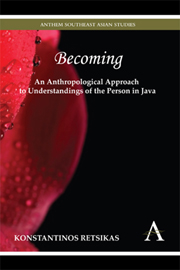Book contents
- Frontmatter
- Contents
- List of Maps and Figures
- Acknowledgements
- Prolegomenon
- Map
- Chapter 1 The Becoming of Place: Moving, Clearing, Inhabiting
- Chapter 2 The Perception of Difference: Embodying, Reversing, Encompassing
- Chapter 3 The Blood of Affinity: Marrying, Procreating, Housing
- Chapter 4 Matters of Scale: Feeding, Praying, Sharing
- Chapter 5 A Pulsating Universe: Annihilating, Enhancing, Magnifying
- Chapter 6 The Marital and the Martial: Gendering, Killing, Oscillating
- Epilogue
- Bibliography
- Index
Chapter 5 - A Pulsating Universe: Annihilating, Enhancing, Magnifying
Published online by Cambridge University Press: 05 November 2012
- Frontmatter
- Contents
- List of Maps and Figures
- Acknowledgements
- Prolegomenon
- Map
- Chapter 1 The Becoming of Place: Moving, Clearing, Inhabiting
- Chapter 2 The Perception of Difference: Embodying, Reversing, Encompassing
- Chapter 3 The Blood of Affinity: Marrying, Procreating, Housing
- Chapter 4 Matters of Scale: Feeding, Praying, Sharing
- Chapter 5 A Pulsating Universe: Annihilating, Enhancing, Magnifying
- Chapter 6 The Marital and the Martial: Gendering, Killing, Oscillating
- Epilogue
- Bibliography
- Index
Summary
Intimate contractions
One is too few, and two is only one possibility.
(Haraway 1991, 180)In his introduction to the influential Fragments for a History of the Human Body, Michael Feher raises a question that is the key pre-occupation of the present chapter: what kind of body do people ‘endow themselves with – or attempt to acquire – given the power they attribute to the divine? A practical question, since it amounts to asking oneself what exercises to do to resemble a god physically or to commune sensually with him’ (1989, 13).
The importance of the question for my purposes arises partly from the discussion of the preceding chapter which focused on the becoming of the neighbourhood into a House. As we have already seen, this process takes place within a ritual framework of exchanges with meals of commensality working towards the eclipsing of separation and the eliciting of non-distinction among a multitude of neighbours who proceed to act as one. These processes of becoming-kin involve interactions as much among the living as between the living and the dead, as genealogically separate ancestors are recast as shared. However, cosmological themes remained in the background of discussions in the previous chapters. The current chapter aims to make explicit the kinds of relations that people in Probolinggo entertain with the populations of alam ghaib (Ind.), the unseen and immaterial world that consists of a bewildering multiplicity of beings inclusive of Allah, the angels, jin (Ind.) and the dead.
- Type
- Chapter
- Information
- Publisher: Anthem PressPrint publication year: 2012



